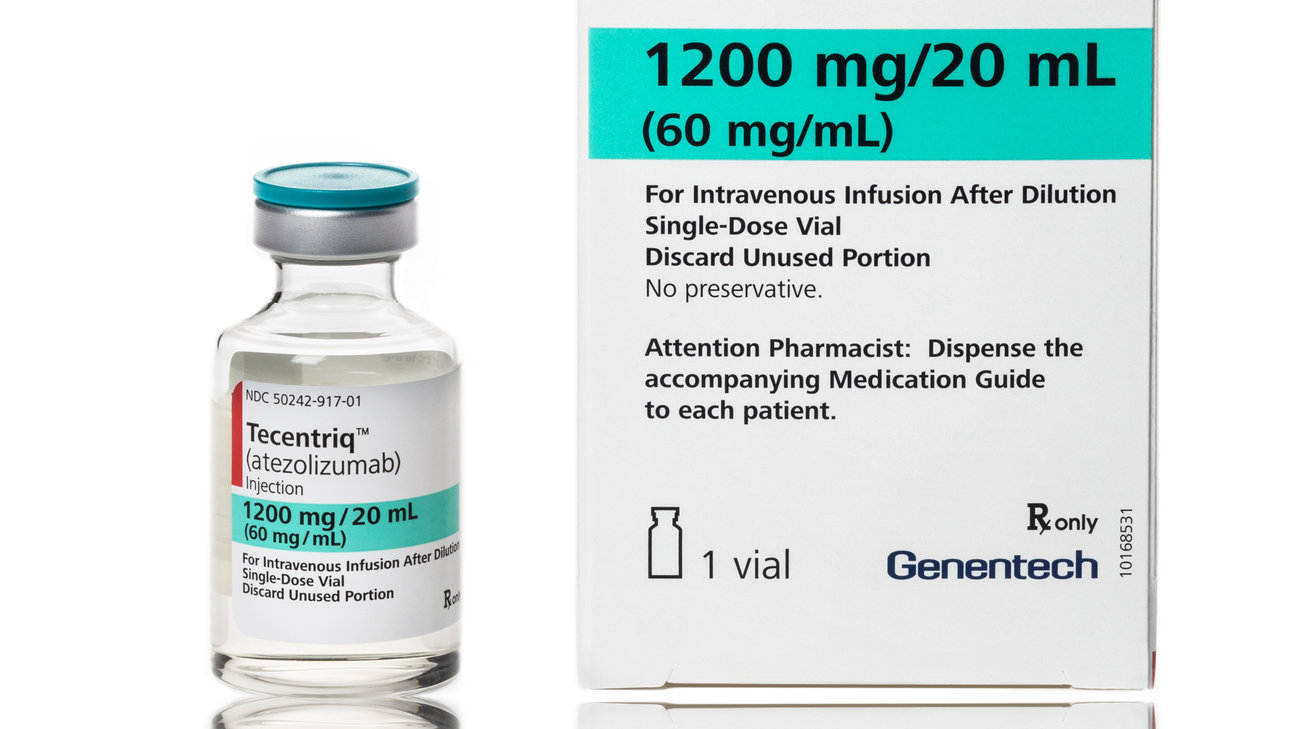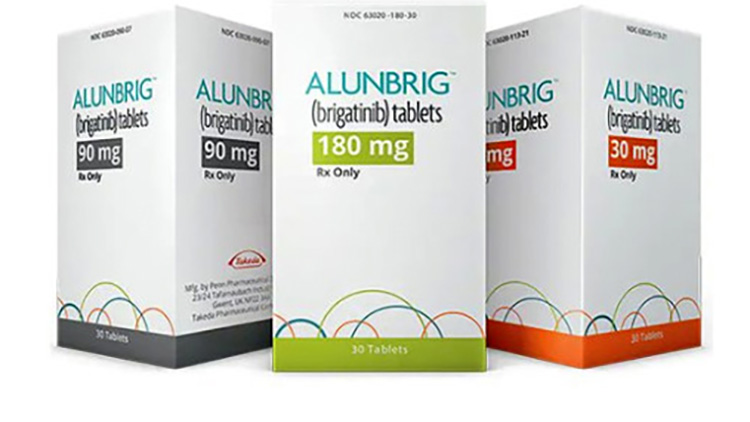Tecentriq (Atezolizumab) vs Alunbrig (brigatinib)
Tecentriq (Atezolizumab) vs Alunbrig (brigatinib)
Tecentriq (atezolizumab) is an immune checkpoint inhibitor that targets the PD-L1 protein, used primarily in the treatment of certain types of lung cancer, as well as bladder cancer and triple-negative breast cancer, among others. Alunbrig (brigatinib) is a tyrosine kinase inhibitor specifically designed to target ALK mutations, and is used for non-small cell lung cancer (NSCLC) in patients who have an abnormal ALK gene. The choice between Tecentriq and Alunbrig would depend on the specific genetic markers and characteristics of the cancer; for instance, Alunbrig would be chosen for ALK-positive NSCLC, while Tecentriq could be considered for a broader range of cancers, particularly where PD-L1 is expressed.
Difference between Tecentriq and Alunbrig
| Metric | Tecentriq (Atezolizumab) | Alunbrig (brigatinib) |
|---|---|---|
| Generic name | Atezolizumab | Brigatinib |
| Indications | Urothelial carcinoma, non-small cell lung cancer, triple-negative breast cancer | Non-small cell lung cancer with ALK mutations |
| Mechanism of action | PD-L1 inhibitor, immune checkpoint inhibitor | ALK and EGFR inhibitor |
| Brand names | Tecentriq | Alunbrig |
| Administrative route | Intravenous infusion | Oral |
| Side effects | Fatigue, nausea, infections, decreased appetite, dyspnea, cough, etc. | Nausea, diarrhea, fatigue, cough, headache, etc. |
| Contraindications | None known specifically; use with caution in patients with autoimmune disease or prior organ transplantation | None known specifically; use with caution in patients with interstitial lung disease or severe renal impairment |
| Drug class | Monoclonal antibody, Immune checkpoint inhibitor | Tyrosine kinase inhibitor |
| Manufacturer | Genentech (Roche) | Takeda Oncology |
Efficacy
Tecentriq (Atezolizumab) Efficacy in Lung Cancer
Tecentriq (Atezolizumab) is an immunotherapy drug that has been approved for the treatment of several types of lung cancer. It is a programmed death-ligand 1 (PD-L1) blocking antibody designed to directly engage the patient's immune system to fight cancer. Tecentriq has shown efficacy in treating non-small cell lung cancer (NSCLC), particularly in patients whose tumors express PD-L1 and who have previously received chemotherapy. Clinical trials have demonstrated that Tecentriq can improve overall survival and progression-free survival compared to chemotherapy alone in certain patient populations with advanced NSCLC.
In small cell lung cancer (SCLC), Tecentriq has been evaluated as part of combination therapy. Studies have indicated that when combined with chemotherapy, Tecentriq can lead to a significant improvement in overall survival in patients with extensive-stage SCLC. This benefit has been observed in patients regardless of PD-L1 expression levels, suggesting that Tecentriq can be effective in a broad range of individuals with this aggressive form of lung cancer.
Alunbrig (Brigatinib) Efficacy in Lung Cancer
Alunbrig (Brigatinib) is a targeted therapy approved for the treatment of NSCLC in patients who have an anaplastic lymphoma kinase (ALK) gene mutation. This mutation is present in a small percentage of NSCLC patients and can be identified through genetic testing. Alunbrig has demonstrated high efficacy in patients with ALK-positive NSCLC, particularly after the failure of crizotinib, which is another ALK inhibitor. Clinical trials have shown that Alunbrig can produce a significant response in terms of tumor shrinkage and has a durable effect, leading to prolonged progression-free survival in many patients.
Moreover, Alunbrig has been shown to be effective in controlling central nervous system (CNS) metastases, which is a common complication in ALK-positive NSCLC patients. The ability of Alunbrig to cross the blood-brain barrier and act on brain metastases provides a crucial advantage for patients, as CNS involvement often leads to significant morbidity and can be challenging to treat with conventional chemotherapy. The efficacy of Alunbrig in managing both systemic disease and CNS metastases makes it a valuable treatment option in the ALK-positive NSCLC therapeutic landscape.
Regulatory Agency Approvals
Tecentriq
-
European Medical Agency (EMA), European Union

-
Food and Drug Administration (FDA), USA

-
Health Canada

-
Pharmaceuticals and Medical Devices Agency (PMDA), Japan

-
Therapeutic Goods Administration (TGA), Australia

-
Medsafe (NZ)

Alunbrig
-
European Medical Agency (EMA), European Union

-
Food and Drug Administration (FDA), USA

-
Pharmaceuticals and Medical Devices Agency (PMDA), Japan

Access Tecentriq or Alunbrig today
If Tecentriq or Alunbrig are not approved or available in your country (e.g. due to supply issues), you can access them via Everyone.org.
How it works

Make an enquiry
Choose the medicine you want to buy, answer a couple of questions, and upload your prescription to speed things up. We’ll get back to you within 24 hours.


Make an enquiry
Choose the medicine you want to buy, answer a couple of questions, and upload your prescription to speed things up. We’ll get back to you within 24 hours.


Breeze through the paperwork
We'll guide you through the required documents for importing unapproved medicine, ensuring you have all the necessary information.


Get a personalized quote
We’ll prepare a quote for you, including medicine costs and any shipping, administrative, or import fees that may apply.


Receive your medicine
Accept the quote and we’ll handle the rest - sourcing and safely delivering your medicine.

Some text on this page has been automatically generated. Speak to your physician before you start a new treatment or medication.
Let's talk
If you have any questions, call us or send us a message through WhatsApp or email:
Contact us




